The Best Staff Communication Apps in 2024: Comprehensive Comparisons and Insights
7 sept. 2024
James Dean
In 2024, the way we communicate at work is more critical than ever. With the rise of hybrid work, remote teams, and the significant presence of deskless workers, businesses are looking for the best ways to keep their teams connected, productive, and engaged. The global collaboration software market is booming, projected to hit $24.5 billion by the end of the year. But with so many options available, how do you choose the right communication app for your team?
Choosing a staff communication app is no longer just about finding a tool that allows people to message each other. It’s about finding a platform that can boost engagement, create a sense of community, and improve productivity. So, how do today’s top contenders—Slack, Microsoft Teams, Staffbase, Simpplr, and Pebb—stack up in meeting these evolving needs?
Why Staff Communication Tools Matter More Than Ever
We’ve all seen how essential communication tools are to keeping organizations running smoothly. But beyond simply messaging and file sharing, the best platforms are designed to foster engagement. Studies show that companies with highly engaged employees are 21% more profitable and have 45% lower turnover rates than those that struggle with employee engagement.
But here’s the challenge: With over 80% of the global workforce (around 2.7 billion workers) working deskless in industries like retail, healthcare, and manufacturing, how do we ensure everyone stays connected and aligned with the company’s mission?
That’s where communication platforms must do more than just offer chat—they need to help employees feel part of a broader community, regardless of their physical location.
Slack: The Messaging Giant for Fast-Paced Workplaces
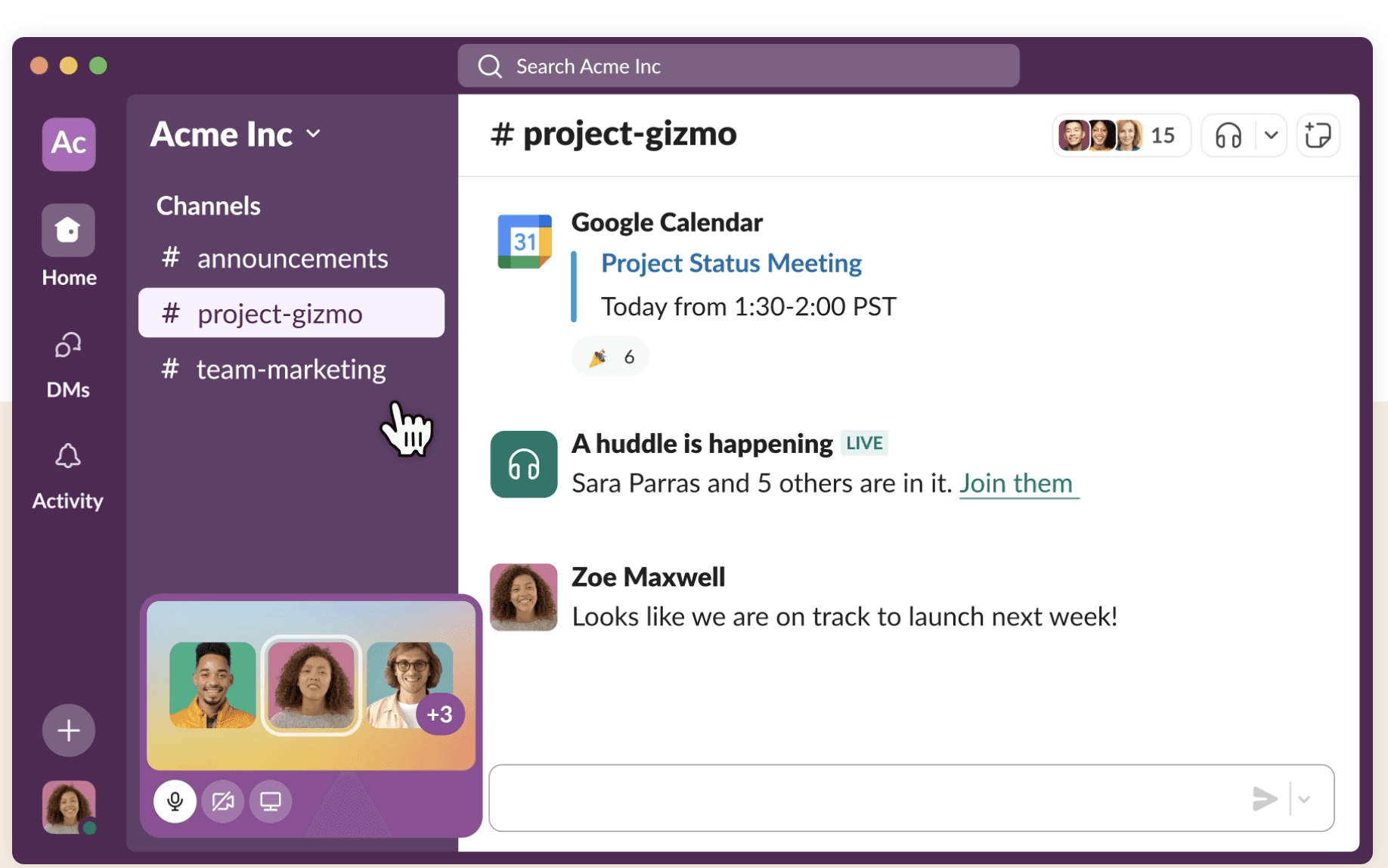
For years, Slack has been the leader in real-time messaging, particularly in tech and startup environments. Slack allows teams to set up channels for projects, departments, or specific conversations, keeping messages organized and efficient. Its over 2,400 integrations with other tools like Google Drive, Trello, and GitHub make it an incredibly flexible option for teams looking to streamline their work.
However, Slack's strengths can also be its downfall. In larger organizations, important messages and updates often get buried in a sea of notifications. Slack’s focus on chat makes it less ideal for building employee engagement across departments, and it doesn’t offer the community-building tools that many companies now seek.
Best for: Tech-driven, fast-paced environments that rely on project-based communication.
Limitations: Not ideal for companies looking to build long-term engagement and culture across diverse teams.
Microsoft Teams: The Productivity Powerhouse

Microsoft Teams is the go-to platform for organizations already integrated into the Office 365 ecosystem. Teams excels at video conferencing, file sharing, and collaboration across documents, which makes it especially useful for industries that deal with heavy documentation and complex projects—think legal, financial services, or corporate enterprises.
But Teams’ strength in productivity doesn’t always translate to employee engagement. Its structured interface can feel formal and rigid, especially for industries or companies looking for more fluid, organic communication. Teams is great for keeping things organized, but its features are more focused on tasks than on creating a sense of connection.
Best for: Organizations deeply embedded in the Office 365 ecosystem, those needing advanced document management.
Limitations: Less emphasis on fostering a connected and engaging company culture.
Staffbase: A Mobile-First Solution for Distributed Teams
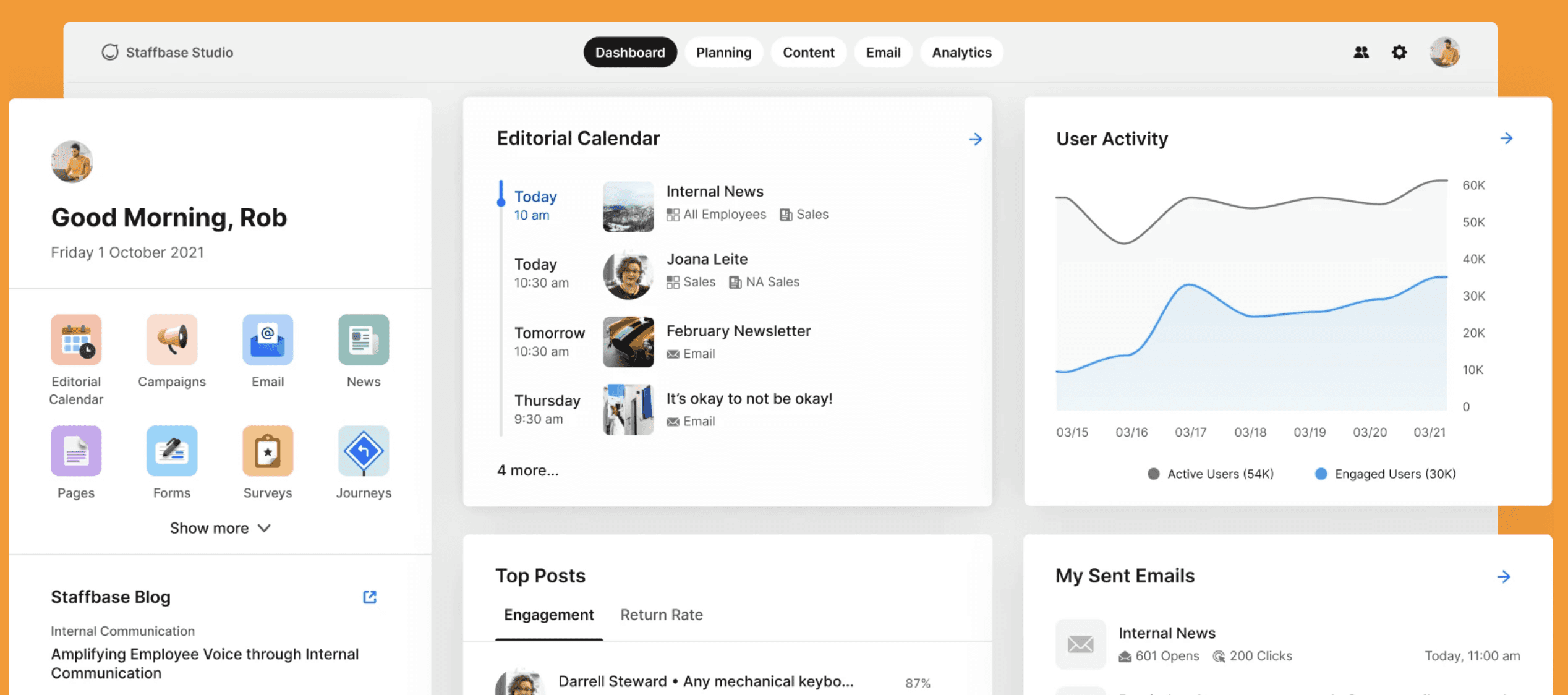
Staffbase is built for large, distributed organizations that prioritize internal communication. Its mobile-first approach makes it especially valuable for deskless workers—think healthcare professionals, retail employees, or manufacturing staff. Staffbase provides companies with custom-branded employee apps, giving them tools like news feeds, surveys, and internal intranets that keep everyone informed and aligned with company goals.
But Staffbase’s real value comes from its analytics. Companies can track the effectiveness of their internal communication strategies and see where improvements are needed. However, setting up Staffbase takes time and effort, and the customization process can be tricky for smaller organizations.
Best for: Large enterprises and companies with significant numbers of deskless workers.
Limitations: High setup costs and time-consuming customization process.
Simpplr: Putting Employee Engagement Front and Center
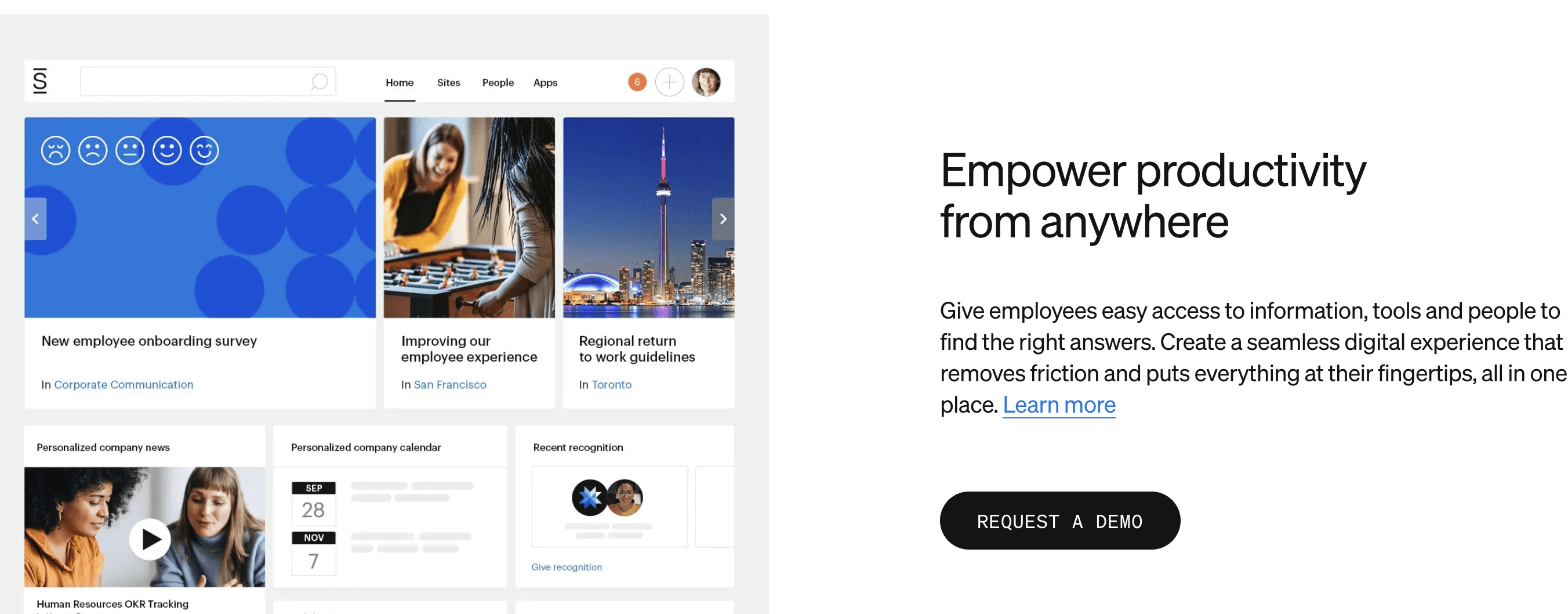
Simpplr is a platform that focuses heavily on the employee experience. It goes beyond just communication, providing a centralized platform where employees can access company news, HR updates, and social features like polls and surveys. Simpplr’s strengths lie in its ability to foster collaboration and connection, making it a great option for companies looking to create a more engaging workplace.
However, with its broad range of features, Simpplr can feel overwhelming for smaller organizations. While larger companies benefit from its range of tools, smaller teams might find the platform a bit too complex for their needs.
Best for: Larger companies focused on improving employee engagement and creating a connected workforce.
Limitations: Overwhelming for small to mid-sized companies, significant time investment needed to customize.
Pebb: A Holistic Hub for Communication and Community
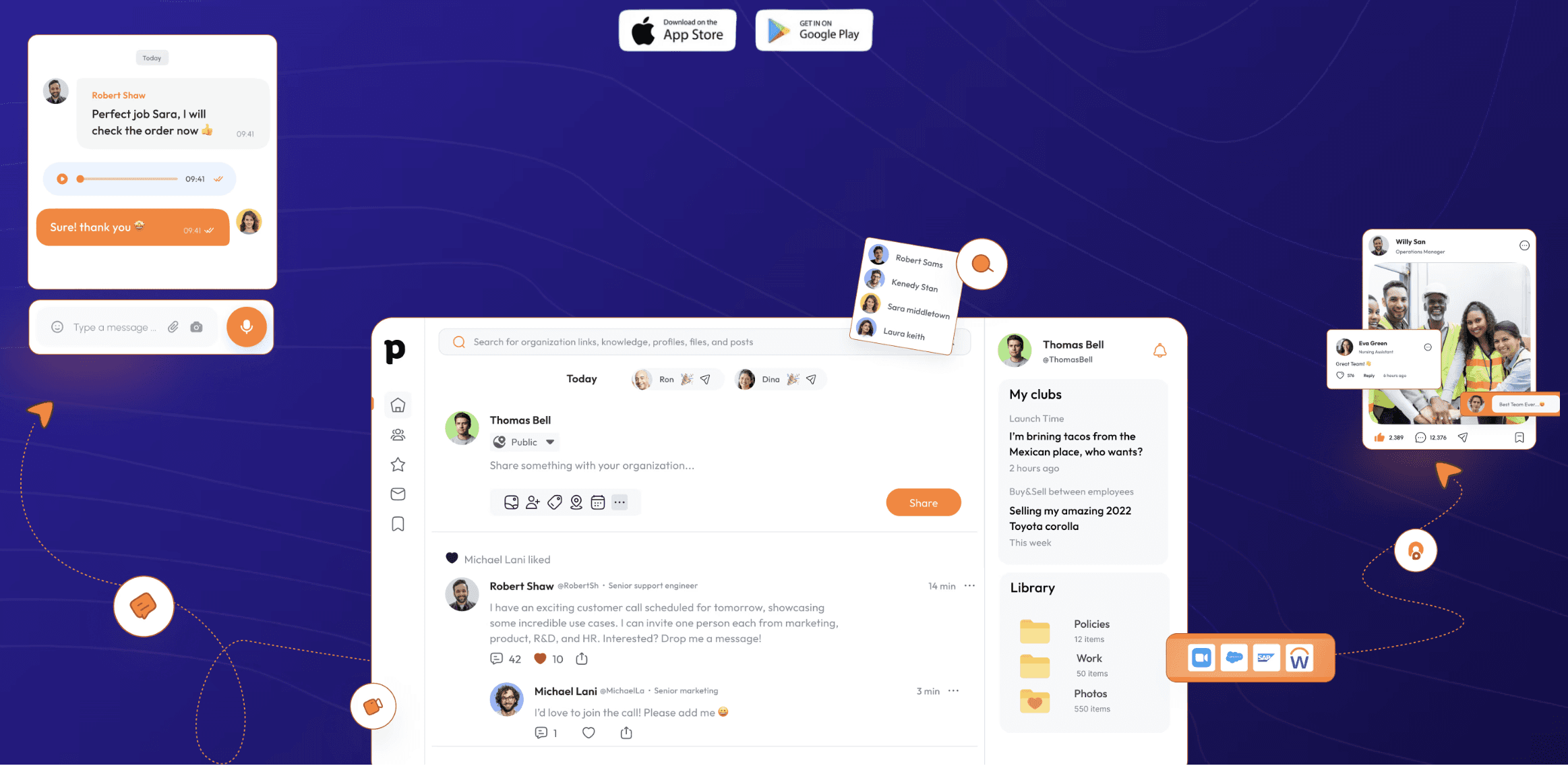
Pebb sets itself apart by offering not only messaging tools but a community-focused platform that goes beyond what Slack or Teams offer. Pebb’s approach is centered on engaging employees through tools like news feeds, dynamic profiles, and clubs, where employees can collaborate on shared interests or projects.
Unlike Slack or Teams, Pebb was designed with deskless employees in mind, offering a mobile-first experience that keeps frontline workers just as connected as their office-based colleagues. Pebb’s focus on fostering a sense of community helps employees feel more aligned with the company’s goals, improving motivation and reducing turnover rates.
Best for: Companies seeking to create a more engaged, community-driven workforce.
Limitations: Fewer third-party integrations compared to Slack and Teams.
Empowering Frontline Workers and Improving Productivity
One of the biggest challenges in industries like retail, construction, and healthcare is ensuring that frontline employees stay connected to the company’s broader goals. Traditional tools like Slack don’t do enough to engage these workers, but Pebb’s mobile-first approach changes that dynamic entirely.
Through Pebb, frontline workers can:
Access real-time updates, images, and videos from headquarters.
Share their own updates with the rest of the company, fostering a two-way communication flow.
Stay informed about strategic goals, helping them feel more connected to the broader mission.
This kind of engagement has proven to boost motivation and productivity across industries. Companies that implement Pebb have seen a 15% increase in productivity among their frontline teams, as workers feel more informed, empowered, and part of the larger company vision.
Real-World Examples: How Companies Use These Communication Platforms
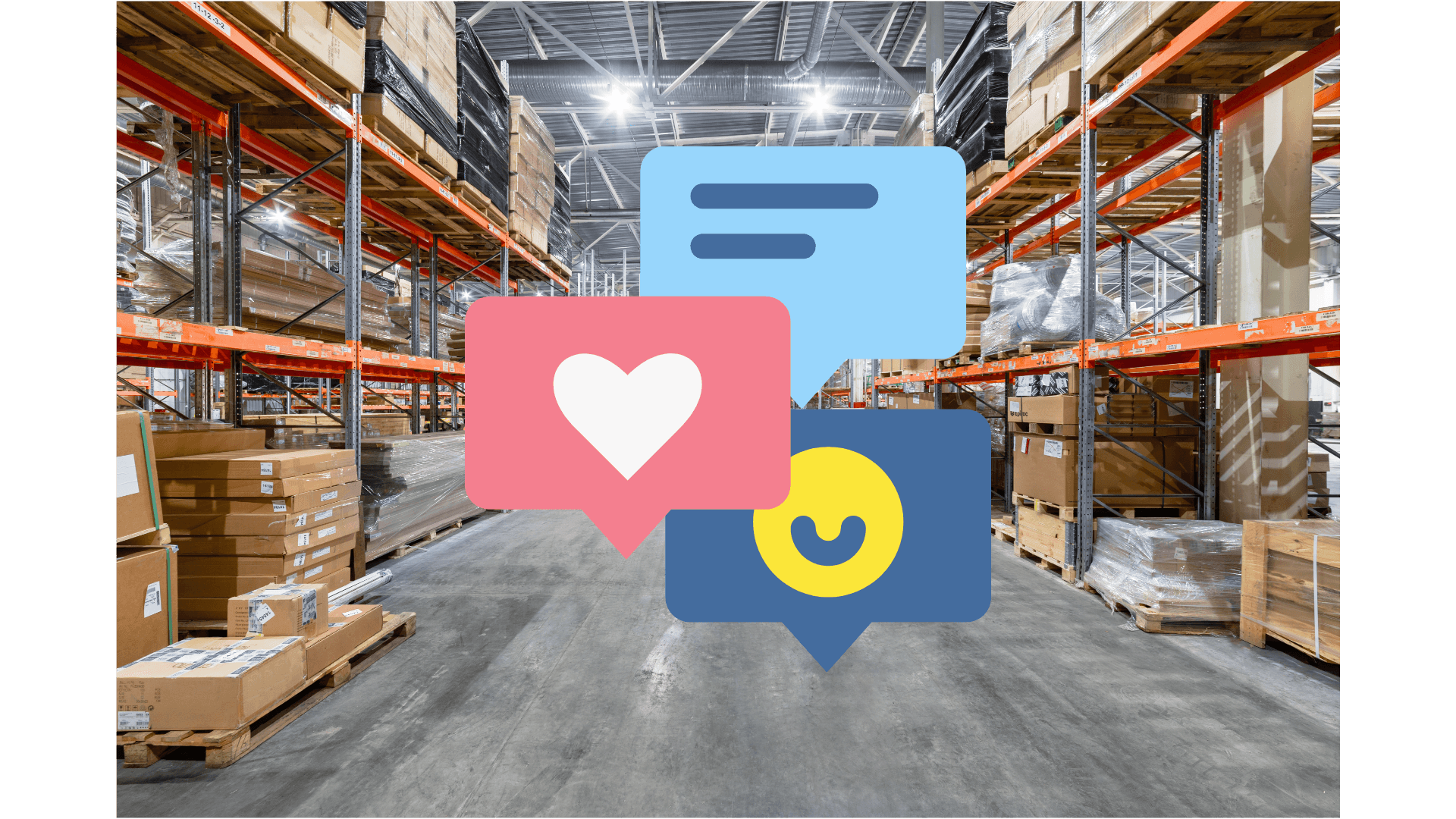
Retail Giant in Europe: A leading retailer adopted Pebb to engage its frontline workers. Store associates now share real-time updates with the head office, ensuring everyone is aligned. This two-way communication has increased engagement across the company.
Healthcare Organization in the US: Staffbase was implemented to streamline communication between clinical and administrative teams, helping employees stay informed, even during crisis situations. This has improved patient care and employee satisfaction.
Tech Firm in Silicon Valley: Simpplr was used to overhaul internal communication, creating a more collaborative environment with a 20% boost in productivity. By integrating HR updates, polls, and social feeds, the company has fostered a more connected workforce.
Conclusion: How Do You Choose the Right Communication Platform for Your Team?
So, what’s the right choice for your company? The truth is, it depends on what your business values most. Are you looking for a tool that enables fast communication like Slack? Or do you need a platform like Pebb that brings everyone together and fosters a sense of community and engagement?
Does your team need a powerful document-sharing tool like Microsoft Teams, or are you more focused on engaging frontline workers like those in retail and healthcare, where platforms like Staffbase and Pebb shine?
Choosing the right communication platform is not just about technology—it’s about finding the right tool to support your company’s culture, engagement strategy, and future goals. As you explore these options, think about how you want your employees to connect, collaborate, and grow together.
What’s your top priority: seamless productivity or building an engaged community? Could Pebb’s holistic approach to engagement be the future for your company? The answer depends on where you want to take your workforce next.





